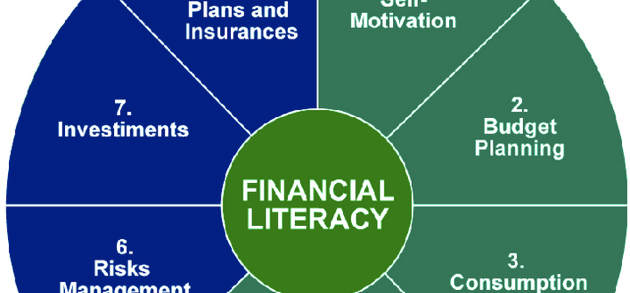SURVEY OF FINANCIAL EDUCATION NEEDS OF TEACHERS
1.Introduction
This report presents the results of a survey of financial literacy needs of teachers carried out as part of an Erasmus Plus Strategic Partnership project entitled Financial Education for Adults (FEES). The project aims to strengthen capacity of institutions to deliver high quality financial education, and enhance the professional development of staff and their competence in delivering financial education
Six countries and 7 organisations were involved in the partnership: Italy – Prometeo; Latvia- Latvian Adult Education Association; Hungary- ETF Alapitvany; Portugal – Recursos Futuros, Unipessoal LDA; Romania – Centrul pentru Formare Profesionala si Dezvoltare Regionala, and UK- BarnetSouthgate College & Global Learning & Skills Partnership.
2.Objective of the Survey
The main objective of the survey was to find out the level of financial literacy among teachers including their knowledge of finance, training and interest in improving their competence in delivering financial education.
3.Methodology
The sample comprised 142 teachers across the 6 partner countries involved in the partnership. The survey was web-based using Google forms. Potential respondents were sent the link to the form and asked to complete and submit it online. The data was analysed to provide frequency distributions, with cross-tabulations. The questionnaire was completed between January and February 2016. A copy is at Appendix 1.

4.Summary of Main Findings
•Teachers were very experienced with 35% having 4-10 years teaching with 31% having more than 10 years’ teaching experience;
•Most were trained with only 7% reporting not to hold a recognized teaching qualification;
•The teachers are academically well-qualified with 77% holding either a Masters or Bachelor’s degree or equivalent;
•43% rated their level of financial literacy as ‘satisfactory’, 18%, as ‘high’, 13% as ‘very high’, 7% as ‘outstanding’ 16% ‘poor, and 3% ‘very poor;
•60% would like to improve their knowledge and skills in finance
•Over one –third (37%) were interested in being trained to deliver financial education;
•Nearly three-quarters (73%) were not familiar with their national strategies, policies and initiatives for promoting financial education;
•Over one third (37%) preferred to learn through blended learning, 27% classroom based and 26% online/internet based;
•Over half 57% think financial literacy should be embedded within the core curriculum and 42% as a separate subject;
•25% rated their knowledge of mortgages as either ‘poor’ or ‘very poor’ and 35% as ‘high’ or better;
•Over one-third, 33% described their knowledge of savings and investment vehicles as either ‘high’ or ‘very high’ and 27% as ‘poor’ or ‘very poor’;
•Over one-third 39% described their knowledge of pensions as either poor or very poor;
•On the banking system just under a half (46%) described their knowledge of the banking and financial system as high or very high;
•Nearly a third (32%) described their knowledge of income, inheritance and capital gains taxes as either poor or very poor;
•Over half (52%) described their understanding of online banking as high or better;
•On the laws governing Internet shopping banking 77% described their knowledge as satisfactory or better;
•On knowledge of insurance and assurance 25% described their knowledge as high or better and 23% as poor or very poor.
There most striking county differences in the responses were:
•96% of Hungarian teachers describing their knowledge of pensions as either ‘poor’ or ‘very poor’ whereas the corresponding figure for Portugal was 27%.
•On mortgages 31% of Romanian respondents described their knowledge and understanding as outstanding compared to 3% of UK respondents and no respondents from Romania or Latvia described their knowledge
•54% of Hungarian respondents described their knowledge of the banking and financial system as ‘outstanding’ compared to the next highest at 7% each in Portugal and Romania
•83% of Romanian teachers were interested in being trained to deliver financial education compared to only 15% in Hungary
•On legislation relating to Internet banking 58% described their knowledge as ‘high’ or ‘very high’, the figure for Latvia was 25%.
•75% of Portuguese teachers described their level of financial literacy as either ‘high’, ‘very high’ or ‘outstanding’. The comparable figure for UK was 35%.
5.Analysis of Survey Results
The aggregated results for the participating countries are presented for each question, and country differences highlighted where they are significant.
The questionnaire was completed by142 teachers across the partnership, of whom with 87 were female (61%) and 55 male (39%) with well over one-quarter 37 (26%) coming from the UK and 14 (10%) from Latvia.


